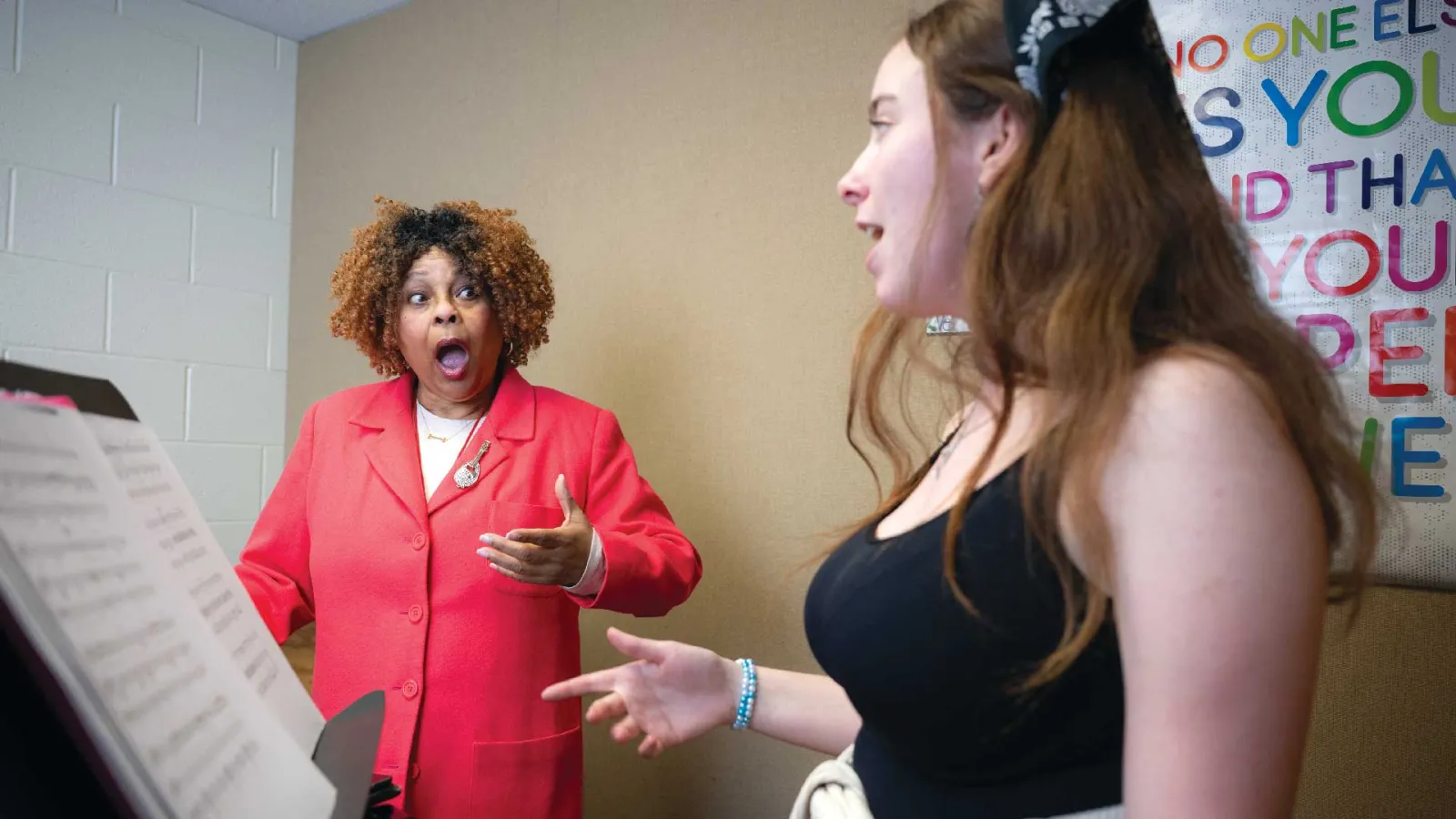When Lisa Gutierrez Guzmán retired from the San Francisco Unified School District, in 2013, she wasn’t done with education. “[Teaching was] still in my blood,” she says.
Like many former educators, working as a tutor was a natural fit for her. But career coach Laura Litwiller says the next step for retirees isn’t always so clear.
“That teacher inside of you is not going away,” says Litwiller, who specializes in working with educators. “But in retirement, it can come out and manifest in different ways.”
Just ask these NEA-Retired members, who have turned their school experience into new careers as a mentor, museum educator, music coach, and even a candymaker!
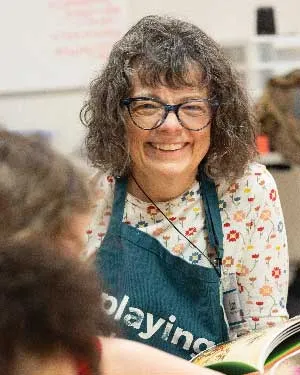
Museum Educator
Lori Mertes
Fairbanks, Alaska
First career: Taught special education for 30 years.
How she found her next role: Mertes met the director of the Fairbanks Children’s Museum through work on their district’s school board. The director loved Mertes’ teaching background and thought she would be a great asset to the museum.
It took a while for Mertes to agree, but then she said, “You finally got me!”
What she does: The museum often asks Mertes to lead themed learning camps. “One was all about trains,” Mertes explains. “The kids read about trains; they built a train; they explored all kinds of different things.”
Bonus! “I still use things that I always did as a teacher, but what’s nice is it’s just so relaxing,” she says. Plus, she loves the flexibility of having a part-time position.
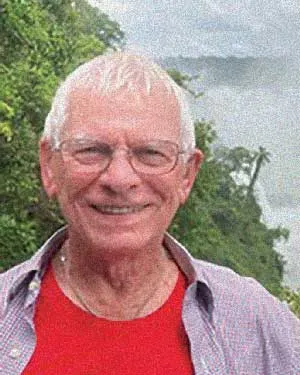
Mentor Teacher
Ray Johnson
Portland, Oregon
First career: Taught high school math for 34 years.
How he found his next role: Two Portland State University professors who he had worked with suggested he apply for
the job.
What he did: For 10 years, Johnson supervised student teachers from the Portland State University School of Education.
“Portland State liked that I was willing to work with any discipline or grade level,” says Johnson, who supervised in kindergarten, history, French, math, and even art classes.
“Teaching is a process, so it was easy for me to tell if my [student teachers] were engaging their students and that learning was going on, regardless of the content.”
Bonus! The role allowed Johnson to give back to the profession, he says. And he relished the flexibility of the work. He could easily arrange his schedule to accommodate his new retired lifestyle.
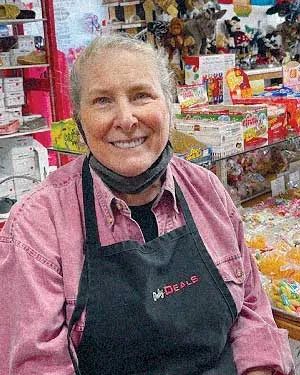
Retail worker (and candymaker!)
Roberta “Bobbie” Margo
Virginia, Minnesota
First career: Served as a school librarian/media specialist for 34 years.
How she found her next role: Margo would often visit Canelake’s Candies in downtown Virginia. The store opened in 1905 and is the oldest continually operating candy store in Minnesota. Before long, Margo found herself working there part-time.
What she does: “When you work there, you do everything,” she says. “You make the candy, you wait on the customers, you order product.”
She works one to two days a week, but often takes on more days during the busy holiday seasons.
Bonus! Virginia is a small town, so working at the candy store allows Margo to keep in touch with former students and colleagues because, as she puts it, “Sooner or later everybody comes to that store.”
Last year—Margo’s 20th year at Canelake’s—she experienced a full-circle moment.
Around the holidays, two newly retired teachers came to work at the store as seasonal employees. Not only had these teachers worked with Margo later in her career, but they were also former students!
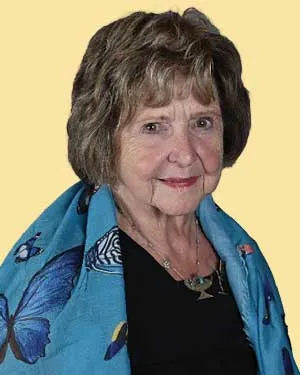
School Nurse Mentor
Jeanne Kiefner
Cherry Hill, New Jersey
First career: Worked as a school nurse for 28 years.
How she found her next role: After retiring, she helped Rutgers University-Camden establish a pilot program to recruit bachelor-prepared nurses to work in schools.
After that program got underway, the Rowan University School of Education recruited Kiefner to serve as an adjunct professor for school nurse candidates.
What she did: For 14 years, Kiefner helped her mentees understand the scope, practice, and advocacy involved in their work.
“It’s not an easy profession,” she explains. “[Decades ago], you went to the school nurse when you had a tummy ache. Now, I educate school nurses about policy, law, and physical and mental health within the school and the community.”
Bonus! Even today, former mentees still reach out to Kiefner for advice.
“If they have a dilemma, I work through it with them,” she explains. “It’s something I really have a passion for.”

Vocal Music Coach
Ina Allen
Evanston/Skokie, Illinois
First career: Taught music for 39 years and worked as a professional classical singer.
How she found her next role: “I was enjoying being totally retired when a former colleague called and told me he was the guest artist at the high school a few blocks from my home,” Allen explains. She went to his concert, and afterward, the choir conductors asked if she was free during the week to work with students.
“Soon, I was filling out paperwork to work in the district!” she says.
What she does: Allen teaches private voice lessons to high school students. Allen has her students explore different musical genres and works with them on voice placement, range development, and clarity of sound, she says.
Bonus! The lessons get her out of the house. “I love working with the students,” she says.
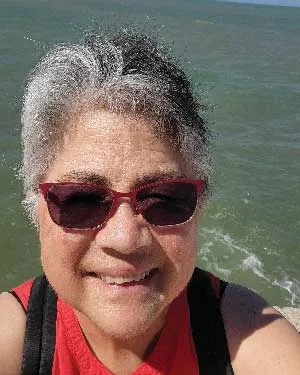
Tutor
Lisa Gutierrez Guzmán
San Francisco
First career: Taught bilingual elementary education for 25 years.
How she found her next role: She saw a post on the Nextdoor app from a neighborhood parent who was looking for a tutor for her kids.
What she did: Guzmán tutored three middle school students. “I helped them with whatever their homework was for the day. … It was kind of like elementary school, where you teach all the subjects,” she says, noting that they covered math, language arts, and social studies.
Bonus! “It’s really important to … do something worthwhile,” she says. “Everyone has a different definition of what ‘worthwhile’ means. In my case, it was continuing to educate children.”
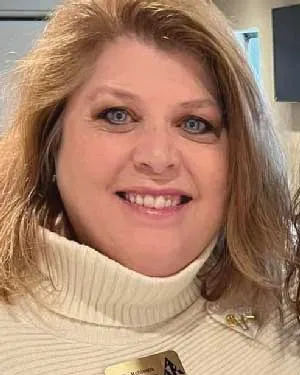
Nonprofit Marketing Specialist
Phyllis Murray Robinette
Colorado Springs, Colorado
First career: Taught elementary school for 34 years.
How she found her next role: Robinette was forced to medically retire during the pandemic. After this sudden change, she jumped into volunteering with her NEA-Retired chapter and with Alpha Delta Kappa (A∆K), an international honorary organization for women educators.
Robinette helped A∆K plan for the group’s first-ever virtual convention in the summer of 2021.
“I ran the green room and went live,” she explains. “In the fall of 2022 they hired me as their first remote worker.”
What she does: Robinette works on growing A∆K’s membership and supports leadership development for women educators around the world.
“My work from coaching and learning all the skills with membership and marketing through the NEA and the Colorado Education Association really built my skillset … because I learned from the best,” she says.
Her advice to newly retired educators? “Do a little heart tug. Ask ‘If I’m really passionate about something, and I’ve done it for years, do I want to continue that work?’”
For Robinette, the answer to that question was a resounding yes.
Ask a Career Coach
“This is the perfect time in your life to do what you want.” That’s what career coach Laura Litwiller tells newly retired teachers. She walks former educators through this multistep framework to help them make clear, confident decisions about the next phase of their professional life:
Step 1: Self-awareness: Look at any self-limiting beliefs you have about what you could do for work. These beliefs might be holding you back from doing something that you really love, so become aware of whatever
voices might be raising doubts.
Step 2: Self-reflection and self-assessment: Get familiar with what you care about at this point in your life. What’s important to you? What are your skills and strengths? What makes you come alive, and what brings you joy? Sometimes we separate “work” and “what brings you joy,” but this stage of life is an opportunity to really merge those two things.
Step 3: Career exploration: Check out what’s out there and discover new possibilities. You may get ideas by talking to people in different fields, through online research, or both.
Learn more about Litwiller’s work and find additional resources.

